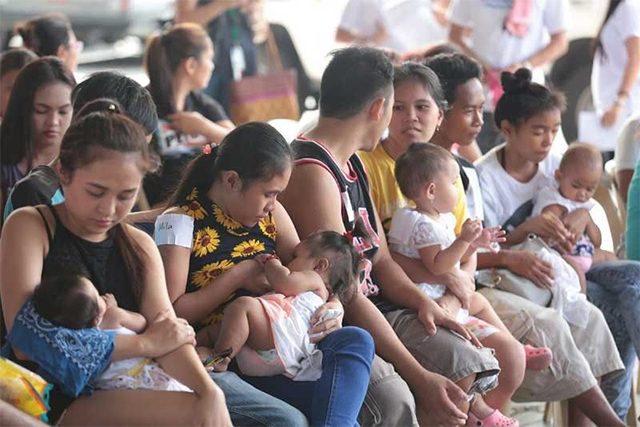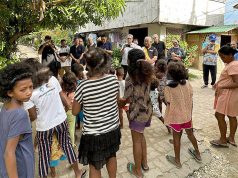The United Nations Population Fund (UNFPA) Asia and the Pacific called on government leaders worldwide to prioritize sexual and reproductive health rights in response to the population development and demographic challenges amid the COVID-19 pandemic.
“UNFPA encourages governments to invest in social services, including sexual and reproductive health rights to ensure that women, men, and young people have access and choices to sexual and reproductive health services, address gender-based violence, including its root causes founded in toxic masculinity and ensure services to gender-based [violence] survivors,” said Björn Andersson, UNFPA regional director for UNFPA Asia and Pacific, in a webinar on World Population Day (WPD) 2021.
Based on a UNFPA research in March, an estimated 12 million women experienced disruptions to family planning services.
UNFPA emphasized that “disruptions in sexual and reproductive health services are aggravated where such services are deemed inessential” amid the global health crisis.
Andersson stressed that demographic changes are diverse across countries, which has a significant impact on sexual and reproductive health and behavior.
“It is important to know that COVID-19 impacts are not necessarily similar across all the countries. In some countries, there are fears of an escalation in unintended pregnancies and unchecked fertility,” he said.
The regional director noted that UNFPA, the United Nations sexual and reproductive health agency, has increased budgetary allocations for family planning programs and commodities.
“In some countries, we supported efforts to reach remote communities through expanding telemedicine services to incorporate family planning and by integrating immunization services with family planning programs,” he said.
Andersson encouraged countries to “find ways to integrate sexual and reproductive health services with gender-based violence prevention and response services.”
“It’s only through a holistic approach, increased resources and joint efforts between governments, civil society, and other partners that we can address harmful norms and values in societies,” Andersson said.
“[G]iven the limited time remaining, this also causes the world to be more challenged to achieve the 2030 agenda for sustainable development and its sustainable development goals,” he added.
Address root causes of teenage pregnancies
Undersecretary Juan Antonio Perez III, executive director of the Philippine Commission on Population and Development (PopCom), said the “stigma” on reproductive health needs is still a prevalent problem in the Philippines.
“This is something that has been happening even before the COVID-19 pandemic, which shows that the roots of our problems here on sexual and reproductive rights and health of girls and women is a longstanding issue,” he said.
Last June 25, President Rodrigo Duterte signed Executive Order No. 141, which was designed to address the root causes of the rising number of teenage pregnancies as a national priority.
READ: Duterte EO declares teenage pregnancy prevention a national priority
Perez said that PopCom will collaborate with other “working agencies who are working in education, health, and other sectors” to identify and implement practicable interventions regarding sexual and reproductive health issues, gender-based violence, among others.
Amid stringent lockdowns, PopCom issued guidelines to their regional offices in delivering “family planning commodities” to the homes of concerned families and individuals.
“We have shifted the work in family planning and RH services to the community level so that the health facilities, if they are unable to deliver the services, have this alternative,” he said.
PopCom also established “Usap Tayo sa Family Planning” and virtual online classes for “pre-marriage and other advocacies of the commission.”
Meanwhile, Human Rights Commissioner Karen Dumpit said their office formed “e-Report sa Gender Ombud,” an online reporting portal for cases of gender-based violence (GBV) amid pandemic.
“The pressure to respond to COVID-19 may disrupt care and support for GBV survivors, and that in times of crisis, referral networks and access to justice in cases of GBV may be disrupted. [W]e understand that not everyone who stays at home is safe and we seek to provide an accessible platform to facilitate reporting, referral, response, and documentation of GBV,” the statement read.
Call to action
The Commission on Human Rights also renewed its calls on existing problems of population growth, including raising awareness on family planning and reproductive health.
“Kinakailangang magkaroon ng access ang bawat mamamayan sa impormasyon at mga serbisyo patungkol sa family planning, nang walang ano mang uri ng diskriminasyon batay sa kasarian, edad, relihiyon, o katayuan ng isang indibidwal,” its said in a statement.
The commission also urged lawmakers to strengthen the implementation of Republic Act No. 10354 or “Responsible Parenthood and Reproductive Health Act of 2012” to ensure citizens have the right to make informed decisions regarding their health and life.
This was also supported by the Department of Environment and Natural Resources – National Capital Region, saying policymakers should “carefully consider population data and trends in their planning, implementation and evaluation of government programs, projects and activities.”
UNFPA Philippines said “many Filipinos are not able to access the sexual and reproductive health information and services they need at this critical time.”
The organization stressed its commitment to “stand up for the rights and choices of all women and girls amid COVID-19 and beyond.”
Climate Change Commission (CCC) emphasized the importance of “urgent climate action to keep families and communities safe amid worsening climate impacts.”
“Today is a call for individuals, families, communities, and government leaders at all levels to take concrete steps to change how we live and how we treat the world and those we share it with,” CCC said in a Twitter thread.
[N]ow is the time for everyone to act. The longer the delay, the more painful and expensive the consequences will be. [S]tronger and timelier climate action can save more lives, avoid trillions of dollars of economic damage globally, and secure resilience for families and communities not just today, but in years and decades still to come,” the commission added.
“Dynamic Demographics: To address population growth or decline, we need rights and choices at the center” was organized by the UNFPA Asia and the Pacific in collaboration with PopCom.
July 11 of every year is declared WPD through UN Resolution 45/216, with the aim of “calling attention to various population-related issues including health, human rights, poverty, equality, environmental degradation, and the importance of population management.”
The Philippine Statistics Authority reported that the Philippine population stands at 109,035,343 in 2020, with the country seeing a 1.63% growth rate in the last five years.










